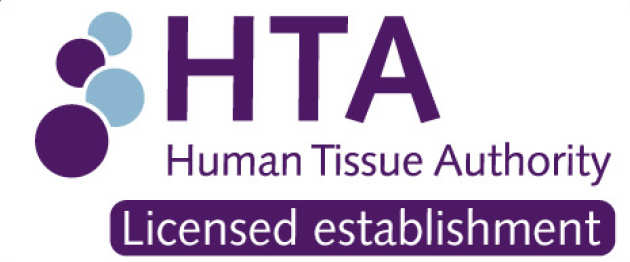Thank you for your interest in donating tissue for research into Multiple Sclerosis and Parkinson’s disease. We understand that donating your brain and spinal cord is not an easy decision to make. Our coordinators are happy to answer any questions you may have so as to help you make an informed decision on whether to become a donor.
The easiest way to make initial contact is to telephone our office number +44 (0)20 7594 9732 and request a mail copy of the donor information pack or alternatively, you can download the documents within this pack on our donor registration documents page.
The pack contains all relevant information and forms to help you become a tissue donor. Furthermore, as the brain and spinal cord are not transplantable tissue, being a member of our donor schemes will not clash with your membership of any other organ donor scheme.
To help you make this very important decision, we have prepared some information for you in the format of frequently asked questions. Our information sheets for multiple sclerosis and Parkinson’s can be found on our donor registration documents page. Please do take some time to read through the pages - it is vital that you feel you have sufficient information to make the important decision of becoming a tissue donor. Also, please discuss your decision with your family - it is essential that they do not have any objections to your wishes.
If you or members of your family would like to discuss any aspect of tissue donation in more detail, please contact our Tissue Bank Coordinator Mr Rory Türkmen Smith on +44 (0)20 7594 9732, or by email (rory.smith@imperial.ac.uk).
Why do we need brain banks?
Dissecting brains
The brain is the most complex organ in the body and every one of its elements is vital for our normal functioning and wellbeing. Although a living brain can be studied using a number of imaging techniques such as magnetic resonance imaging (MRI), scientists rarely get a chance to study and dissect physical brain tissue. Surgical procedures and brain biopsies yield very small amounts of tissue, used primarily for diagnosis.
During the last couple of decades, we have seen an ever-increasing need to access specific brain areas in order to unravel different disease mechanisms that underlie neurological conditions. The use of post-mortem human brain tissue has been instrumental in helping understand the pathology of neurodegenerative disorders, such as Parkinson’s disease, and to develop new treatments. In multiple sclerosis (MS) this approach has led to the development of some of the latest treatments, for example, Natalizumab. It is also helping to discover why MS lesions appear in a random manner and the relationship between the location of MS lesions in the brain and the level of disability experienced by people with MS.
Over the years scientists have advanced knowledge of MS and Parkinson's using different experimental approaches, ranging from looking at isolated proteins and cells to establishing different animal models. Whichever way they generate their conclusions, at some point scientists have to relate what they find back to human tissue to ensure that they are on the right track. This approach, termed validation and translation, represents the most important process in modern science and speeds up the delivery of new drugs from a laboratory to the individual.
 The Multiple Sclerosis and Parkinson's Tissue Bank functions as a coordinating body between tissue donors, the scientific community, healthcare professionals and charitable organisations supporting MS and Parkinson's research. All tissue bank activities are regulated by very precise ethical guidelines and laws, such as the Human Tissue Act. So far, more than 1,600 human brains and spinal cords have been collected, each one giving approximately 250 individual specimens. A large percentage of these specimens have already been used to supply many UK and international research studies whose experimental work has changed the way we think about brain conditions, opening new avenues for treatment.
The Multiple Sclerosis and Parkinson's Tissue Bank functions as a coordinating body between tissue donors, the scientific community, healthcare professionals and charitable organisations supporting MS and Parkinson's research. All tissue bank activities are regulated by very precise ethical guidelines and laws, such as the Human Tissue Act. So far, more than 1,600 human brains and spinal cords have been collected, each one giving approximately 250 individual specimens. A large percentage of these specimens have already been used to supply many UK and international research studies whose experimental work has changed the way we think about brain conditions, opening new avenues for treatment.
Keeping in touch
If you are an existing donor, please contact us to let us know of any changes to your personal details.
The tissue bank publishes a newsletter once a year with multiple sclerosis news and occasionally contributes an article to the bi-annual Progress magazine published by Parkinson's UK. Copies of our current publications, as well as previous editions, can be found on our newsletters page.
General enquiries
MS and Parkinson's Tissue Bank
Division of Brain Sciences
Imperial College London
Hammersmith Hospital Campus
Du Cane Road
London W12 0NN, UK
+44 (0) 20 7594 9734 (MS)
+44 (0) 20 7594 9732 (Parkinson's)
brainbank@imperial.ac.uk
Emergency contacts
From 1 December 2017 our emergency number is changing to
07566 950 965 (MS and Parkinson's)



